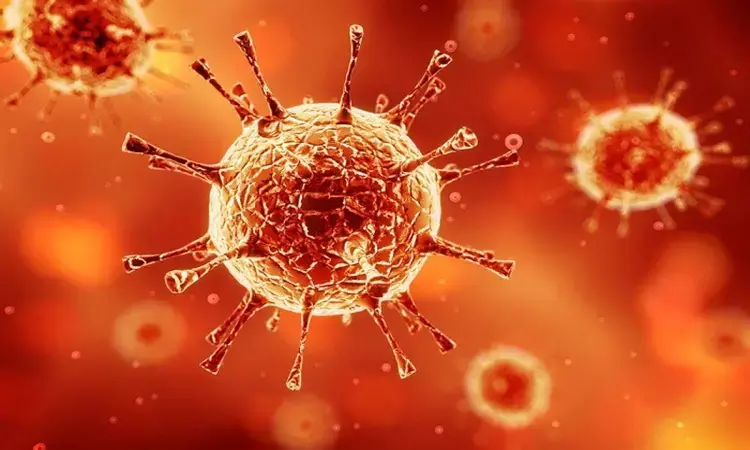- Home
- Medical news & Guidelines
- Anesthesiology
- Cardiology and CTVS
- Critical Care
- Dentistry
- Dermatology
- Diabetes and Endocrinology
- ENT
- Gastroenterology
- Medicine
- Nephrology
- Neurology
- Obstretics-Gynaecology
- Oncology
- Ophthalmology
- Orthopaedics
- Pediatrics-Neonatology
- Psychiatry
- Pulmonology
- Radiology
- Surgery
- Urology
- Laboratory Medicine
- Diet
- Nursing
- Paramedical
- Physiotherapy
- Health news
- Fact Check
- Bone Health Fact Check
- Brain Health Fact Check
- Cancer Related Fact Check
- Child Care Fact Check
- Dental and oral health fact check
- Diabetes and metabolic health fact check
- Diet and Nutrition Fact Check
- Eye and ENT Care Fact Check
- Fitness fact check
- Gut health fact check
- Heart health fact check
- Kidney health fact check
- Medical education fact check
- Men's health fact check
- Respiratory fact check
- Skin and hair care fact check
- Vaccine and Immunization fact check
- Women's health fact check
- AYUSH
- State News
- Andaman and Nicobar Islands
- Andhra Pradesh
- Arunachal Pradesh
- Assam
- Bihar
- Chandigarh
- Chattisgarh
- Dadra and Nagar Haveli
- Daman and Diu
- Delhi
- Goa
- Gujarat
- Haryana
- Himachal Pradesh
- Jammu & Kashmir
- Jharkhand
- Karnataka
- Kerala
- Ladakh
- Lakshadweep
- Madhya Pradesh
- Maharashtra
- Manipur
- Meghalaya
- Mizoram
- Nagaland
- Odisha
- Puducherry
- Punjab
- Rajasthan
- Sikkim
- Tamil Nadu
- Telangana
- Tripura
- Uttar Pradesh
- Uttrakhand
- West Bengal
- Medical Education
- Industry
Study reports high incidence of VTE in severe Covid-19 patients

London-Researchers have reported high incidence of deep vein thrombosis in patients with severe Covid-19 in an intensive care unit in France.
They have found that 69% of venous thromboembolic events in anticoagulated COVID‐19 patients.
It is therefore suggested that VTE screening and therapeutic anticoagulation in severe COVID‐19 patients should be considered.
Coagulopathy is a common abnormality encountered in patients with COVID‐19. However, the exact incidence of venous thromboembolic event is unknown in anticoagulated, severe COVID‐19 patients.
Mortality of patients with COVID-19 admitted to ICUs has been reported to be high, at 50%.6 Frequent venous and arterial thrombotic events have been reported, with rates from 27% to 69% of peripheral venous thromboembolism and up to 23% of pulmonary embolism.4,5 The occurrence of pulmonary embolism might be favored by deep vein thrombosis.
This may indicate the need for systematic anticoagulant therapy in these patients as a preventive measure, said researchers from Centre Cardiologique du Nord, Saint-Denis, France.
A common type of venous thrombosis is a deep vein thrombosis (DVT), which is a blood clot in the deep veins of the leg.
For the findings, published in the JAMA Network Open, a total of 34 consecutive patients were included for the tests.
Patients with severe Covid-19 pneumonia were admitted to the ICU located in the suburban Paris area from mid-March 2020 to the beginning of April 2020.
All patients had acute respiratory distress syndrome, according to the Berlin definition and required mechanical ventilation.
Of the 34 patients, 65 per cent had deep vein thrombosis at the time of admission, and in another five patients, bringing the total up to (79 per cent), at the time of repeat venous ultrasound.
In 18 of the patients or over 50 per cent, bilateral deep vein clots were found to be present.
The study also showed that in a quarter of patients, the clot was within the veins nearer the heart.
According to the researchers, among the 15 patients with diabetes in total, for instance, 12 developed deep vein thrombosis.
Similarly, for the 13 patients with hypertension, nine developed thrombosis.
The findings showed a higher white cell count, lymphocyte count, and platelet count in peripheral blood in the patients who developed deep vein thrombosis compared to the other group.
"This case series reports a systematic assessment of deep vein thrombosis among patients in an intensive care unit (ICU) in France with severe COVID-19," the authors wrote.
For further reference log on to:
Medical Dialogues Bureau consists of a team of passionate medical/scientific writers, led by doctors and healthcare researchers. Our team efforts to bring you updated and timely news about the important happenings of the medical and healthcare sector. Our editorial team can be reached at editorial@medicaldialogues.in.
Dr Kamal Kant Kohli-MBBS, DTCD- a chest specialist with more than 30 years of practice and a flair for writing clinical articles, Dr Kamal Kant Kohli joined Medical Dialogues as a Chief Editor of Medical News. Besides writing articles, as an editor, he proofreads and verifies all the medical content published on Medical Dialogues including those coming from journals, studies,medical conferences,guidelines etc. Email: drkohli@medicaldialogues.in. Contact no. 011-43720751


